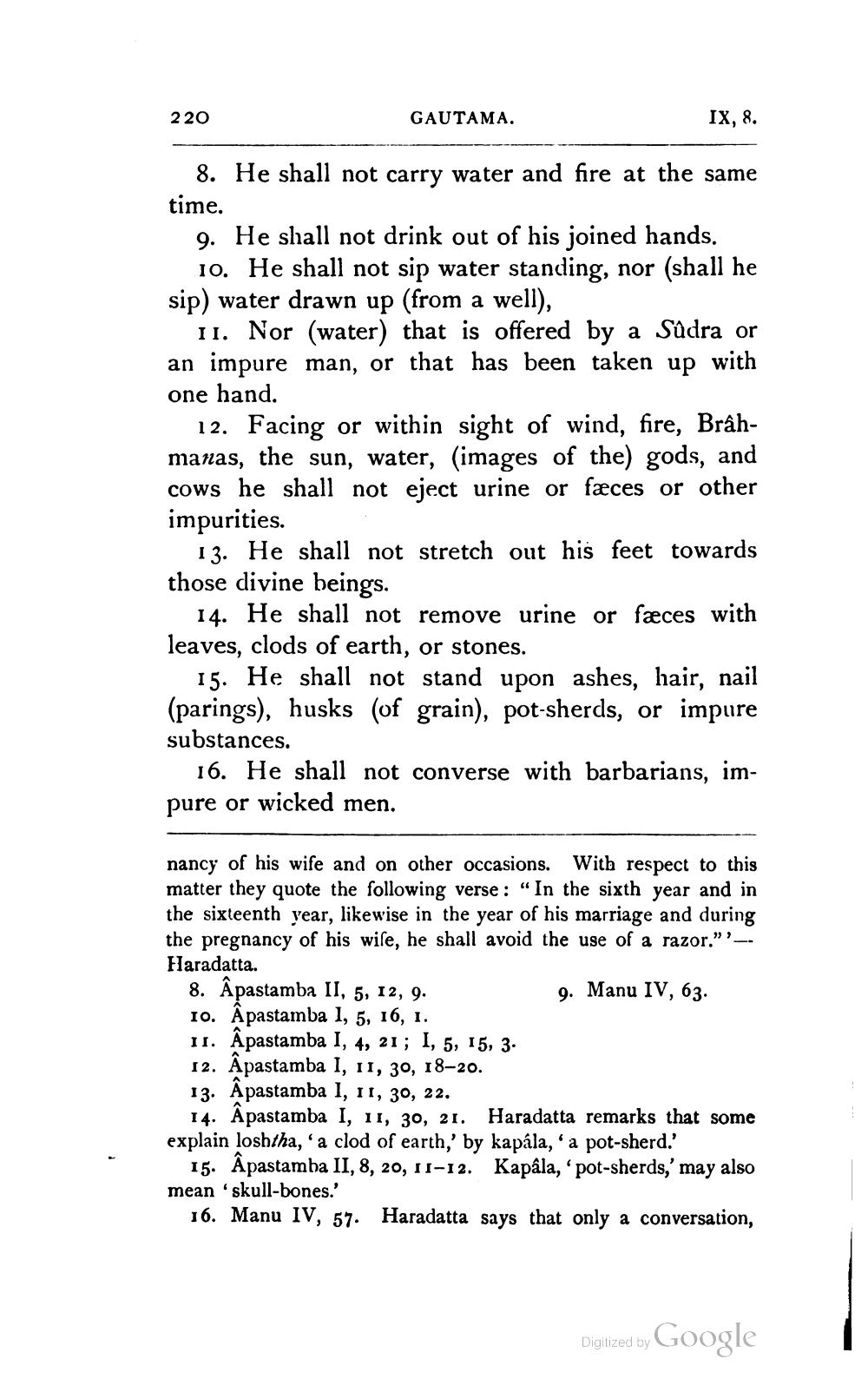________________
220
GAUTAMA.
IX, 8.
8. He shall not carry water and fire at the same time.
9. He shall not drink out of his joined hands. 10. He shall not sip water standing, nor (shall he sip) water drawn up (from a well),
11. Nor (water) that is offered by a Sûdra or an impure man, or that has been taken up with one hand.
12. Facing or within sight of wind, fire, Brâhmanas, the sun, water, (images of the) gods, and cows he shall not eject urine or fæces or other impurities.
13. He shall not stretch out his feet towards those divine beings.
14. He shall not remove urine or fæces with leaves, clods of earth, or stones.
15. He shall not stand upon ashes, hair, nail (parings), husks (of grain), pot-sherds, or impure substances.
16. He shall not converse with barbarians, impure or wicked men.
nancy of his wife and on other occasions. With respect to this matter they quote the following verse: "In the sixth year and in the sixteenth year, likewise in the year of his marriage and during the pregnancy of his wife, he shall avoid the use of a razor."'. Haradatta.
9. Manu IV, 63.
8. Âpastamba II, 5, 12, 9. 10. Apastamba 1, 5, 16, 1. 11. Apastamba I, 4, 21; I, 5, 15, 3. 12. Apastamba I, 11, 30, 18–20.
Haradatta remarks that some
13. Apastamba I, 11, 30, 22. 14. Apastamba I, 11, 30, 21. explain loshtha, 'a clod of earth,' by kapála, ' a pot-sherd.' 15. Âpastamba II, 8, 20, 11-12. Kapâla, 'pot-sherds,' may also
mean skull-bones.'
16. Manu IV, 57. Haradatta says that only a conversation,
Digitized by Google




